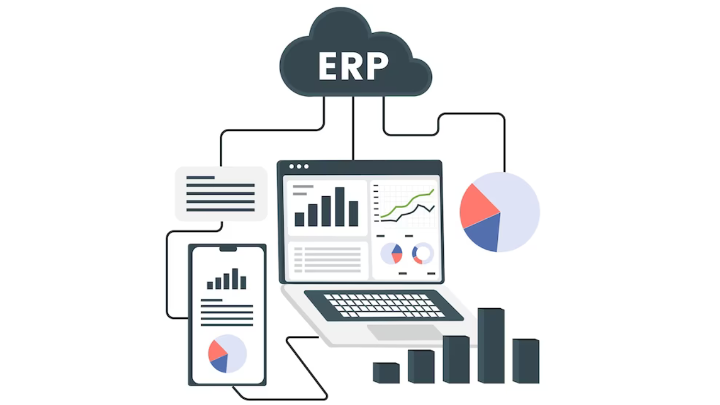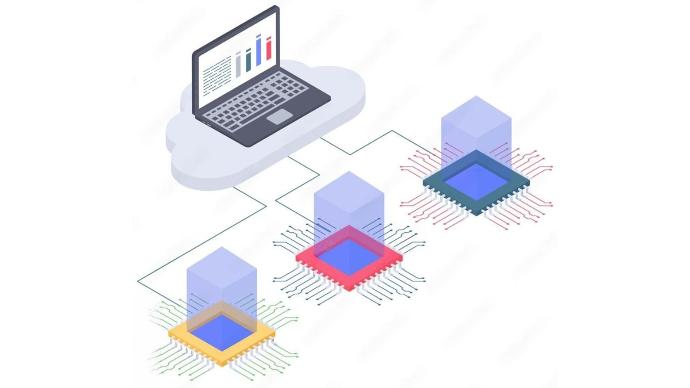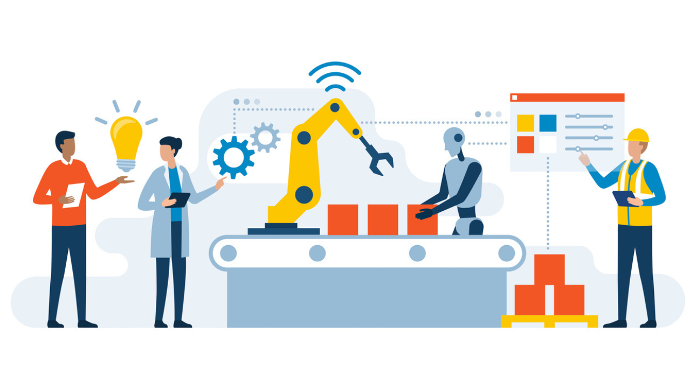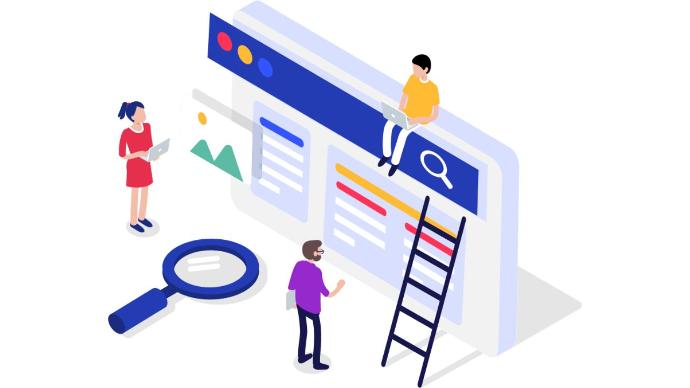In businesses, there are different groups that do different jobs. But the whole company needs to stay together and share news about what's happening. That's how everyone knows what's going on in the company.
Every part of the company should be able to see each other's information. If there's no one system for all, things get complicated and jobs take longer, making everything slow and not work well. That's why a single system is important to keep things running smoothly.
Want to make your finance team work better and make your business run smoother? Teknovate ERP (Enterprise resource planning) is one of these helpful solutions. It makes sure everything runs nicely for the whole company.
In this blog, we'll talk about What is ERP? Understanding key features & benefits, how organisations can successfully implement it.
What is ERP (Enterprise Resource Planning)?

Enterprise Resource Planning (ERP), often known as ERP software, is an all-in-one tool for our organization. It helps us manage a bunch of important tasks – creating things, handling money, selling and buying items, running projects, and more. Think of it as a team of experts, each with their own skills, working together to save the day. ERP is like these experts pooling their talents and collaborating.
The coolest part? ERP makes it easy for everyone in the company to share info and work together smoothly. It's like having a central hub where all the important stuff is stored and anyone can find what they need. This boosts teamwork and smart decision-making.
And guess what? This powerful ERP tool helps us work quicker, avoid errors, and stay updated about everything in our company. It's like having a special ability that makes our company even more awesome!
So, think of ERP like a smart software for businesses. It handles all the company's info, making it easy for different parts of the company to work well together. While Implementing ERP, it gives many benefits for your business as things get done faster and work gets smoother.
Enterprise resource planning systems work for all kinds of businesses. But some industries need a special version that connects their parts perfectly. These industries need stable connections between departments or even different organizations.
Here are a few examples:
- Retail
- Food Industry
- Rubber & Plastic
- Chemical Industry
- Real Estate
- Solar Manufacturer
- EPC Companies
- Manufacturing
- Automobiles
Don't Just Read About Success,
Take the Next Step
Let's Schedule a Consultation Meeting
Features of ERP(Enterprise Resource Planning) System
1. Integration:
When information is stuck in different places, it slows things down and causes problems. ERP fixes this by giving everyone a clear look at important data like flow of operations, credit availability, track record of stock etc. This helps the whole team work together better, and they can all see the information right away.
2. Centralized common database System:

ERP systems that change data into useful reports and ideas for a company. These reports help the company make smart decisions, like moving resources around or taking advantage of entering into new markets. It's like having a crystal ball that helps the company make good moves and also improve performance.
3. Automation:
ERP makes tasks like paying employees, processing orders, and creating invoices really easy. It does this by doing these things automatically, which saves time and stops mistakes. This means employees can spend more time on important jobs that help the company grow.
In ERP, when one person adds information, everyone in the company can use it. For instance, if something is available in stock, the system can automatically send it out and make a bill. Also, bosses can get new reports about money and other important stuff to help them to make strategic decisions.
4. A Modular Approach:
It combines the whole business departments such as manufacturing, financial, accounting and distribution etc. Each module will take care of all the particular departmental functions accurately. Although all the departments are distinct, the integration facility provides seamless flow of data.
5. Financial Management:
Financial Management is a tricky task that involves planning, organizing and finding the best way to use funds for business. As Financial Leaders are in charge of tracking and using financial data from all the departments to make decisions as if cash management, capital projects, finding resources, financial control too.
ERP system helps finance teams by keeping track of management process of business with critical business data and analysis. In large companies, especially complex ones, ERP systems are necessary for sound financial management.
6. Supply Chain Management (SCM):
ERP system shows insight into a company's supply chain management efficiency by tracking demand, inventory, manufacturing processes, distribution and logistics. When the supply chain is all connected and automatic, it helps the company work better. It can even suggest what to order, make, and move between different places.
7. Human Resource (HR):
In ERP, the HR part takes care of everything about employees, from start to finish. It helps with paying them, bringing in new folks, keeping track of pay and time, and more. Even tough tasks like taxes and benefits are made easy with special HR software connected to ERP. This helps save time, money, and makes sure everything is done right.
8. Manufacturing:

ERP began in manufacturing and still helps today. It makes making things easier by planning, getting materials, and tracking how things are made. It also has parts for managing the steps, like making lists, handling orders, and watching the production. This way, everything runs smoothly and everyone knows where things are.
Working together with SCM, ERP manufacturing tools make it better to handle and automate major inventory planning and forecasting. They help with deciding what to keep and predicting what will be needed.
9. Reporting and Analytics:
In today's digital world, data is like hidden treasure waiting to be discovered. ERP software works like a refinery, turning valuable ideas from the big sea of info made by different business activities. With special tools for reports and smart thinking, ERP changes rough data into useful ideas.
Bosses and managers can look at special reports and info boards that show everything the company does. This info-based way helps bosses see things coming, understand risks, take chances, and pick smart things to do. As we keep looking, we'll see how ERP software's flexibility, teamwork abilities, and focus on safety make it a strong solution. It's ready for today's business and can grow for tomorrow too.
10. Customizable Option:
Apart from different ways to set it up, it's important to find an ERP provider that can change things according to your business. As companies get bigger or change, their ERP systems should change too. A good provider will give you a system that fits what you need. Like, if you make things, you'd want an ERP system specifically made up for different organizations.
11. Excellent Support and management:
When picking an ERP provider, it's important to check if they give good support. Here's why: ERP is a big system that helps with lots of stuff in your business. As your business gets bigger, your ERP system should too. That's why it's smart to have a provider that can help you well, all around the world.
12. Common Database:
Setting up a special system where all data goes into one place (like a super-storage), also known as a DBMS, is a big part of a good ERP system. This way, all the parts of the company use the same info at the same time. This stops mistakes and problems that come from using many different places to keep info.
13. Flexibility and Scalability:

Companies are optionally dynamic in nature, and that's where ERP systems come in handy. These systems are like adaptable tools that can adjust to what the company needs. The development options will depend upon the specific requirements of the business need. It either can be on Premises, cloud or Hybrid or both.
For example, if you want to secure your sensitive business information then on-premises could be a better option. For the business scalability and wide operation companies are moving towards Cloud ERP.
Get All these Characteristics in All- in- One Platform with Teknovate ERP
Teknovative Solution works for small to midsize businesses in any field, giving quick info, improved customer service, and lowered supply chain costs. It helps by joining and automating important money and work tasks, like handling things in stock, orders, and moving items around. We are supportive partners for your company.
Find out how Teknovate ERP can make your organization even better and more advanced.
Don't Wait for the Right Time,
Let's Talk & Implement it
Let's Schedule a Consultation Meeting